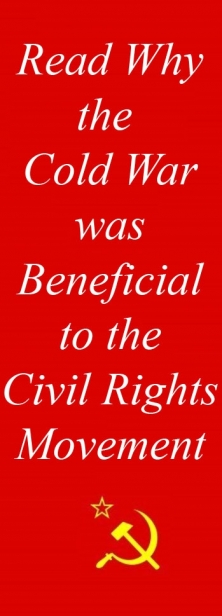- one of the questions that had to be examined during the Stalin era... This article goes into greater length to confirm what U.S. diplomat George F. Kennan (1904 – 2005) observed in his famous 1947 article "Sources of Soviet Conduct" (FOREIGN AFFAIRS, July 1947) - that the Russian people were physically and spiritually exhausted. After the terrible strain and sacrifice of the Second World War they were gleefully anticipating some much needed rest; they didn't get it and they weren't very happy about it.

"The standard of living in Russia has never been very high, but even despite his natural stoicism, the average citizen feels he has a good reason to be disgruntled with his life... Like any other totalitarian state, the Soviet state has done its best to paint a larger than life-size picture of its citizens. It likes to describe them as steel-hard heroes with an inflexible will, living for nothing but the great ideal of a Communist future, laughing at difficulties, gaily grasping with hard ship - a continent of Douglas Fairbankses. This is just a bit too good to be true, and the last one to be taken in by it is the average Russian." This Cold War article about the American Communist Party (CPUSA), penned in 1950 by F.B.I. Director J. Edgar Hoover (1895 – 1972) was published for two reasons:
• To alert the readers that such subversive groups exist and that they are operated by their fellow Americans who take orders from Joseph Stalin -
• and that the F.B.I. is on the job and has thoroughly infiltrated their ranks and watches them very closely.
The column is a good read for all of you out there who enjoy the "cloak and dagger" type of plot lines; I was surprised to learn that this group had so many secrets to hide - seeing that their problems in the arena of public relations at that time were so overwhelming, one has to wonder how they were actually able to tend to their assignments in espionage, sabotage, propaganda and all other assorted shenanigans Moscow expected of them.
Click here to read about the man who spied on the the American Communist Party.
Click here if you would like to read what the CPUSA was up to during the Great Depression.
In time, J. Edgar Hoover's prestige began to fade...
In his illustrated five page reminiscence, former Communist refugee Ivan Pluhar (b. 1927), recalls those dreadful days following the end of the Second World War when it became clear to all the citizens of Czechoslovakia that their Soviet "liberators" would never leave their country. The article will clue you in as to what life was like during the earliest years of the occupation and how dissenters were treated throughout that period.
A Quick Read About Soviet-Enforced Atheism
Behind the Iron Curtain...
This is a consumer report concerning various bomb shelter plans that were commercially available to the American public in 1955:
"The most elaborate of five government-approved home bomb shelters is a combination tunnel and emergency exit in reinforced concrete, extending outward under ground from cellar walls It holds six persons and offers maximum protection from all effects of an atomic explosion... But the FCDA (Federal Civil Defense Administration) also recommends a practical type type that can be put together by any do-it-yourselfer for around $20.00." Not too long after the end of World War II, the French, British and Americans found that they had to assemble a coalition of nations (NATO) that would be willing to fight the Soviets for what was believed to be an even bigger rumble in the future - but after losing two enormous wars, West Germany refused to join.
|